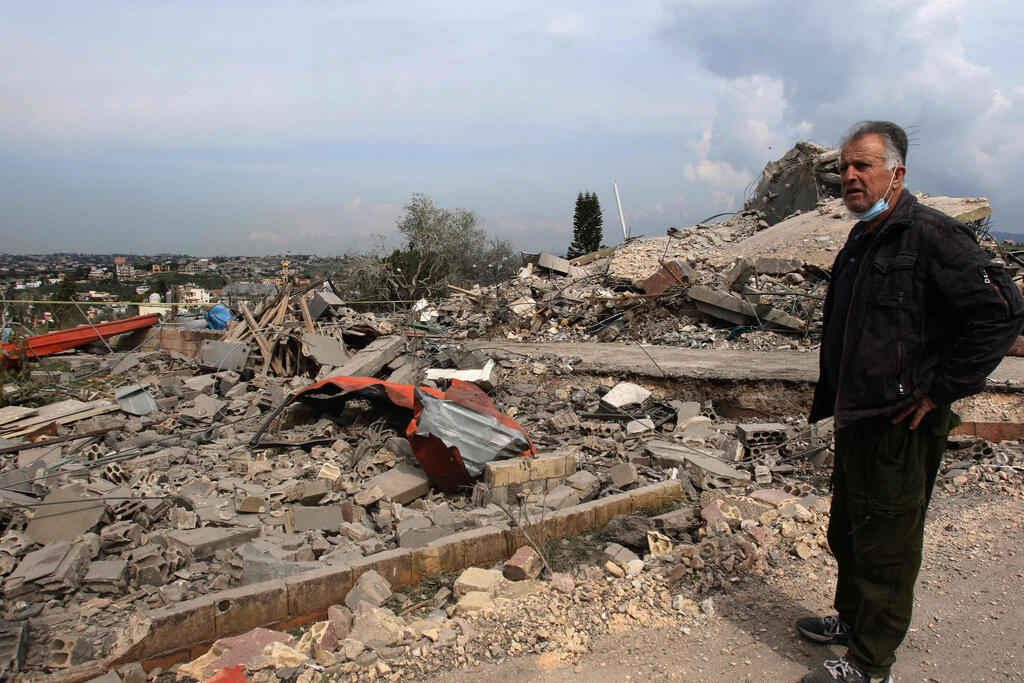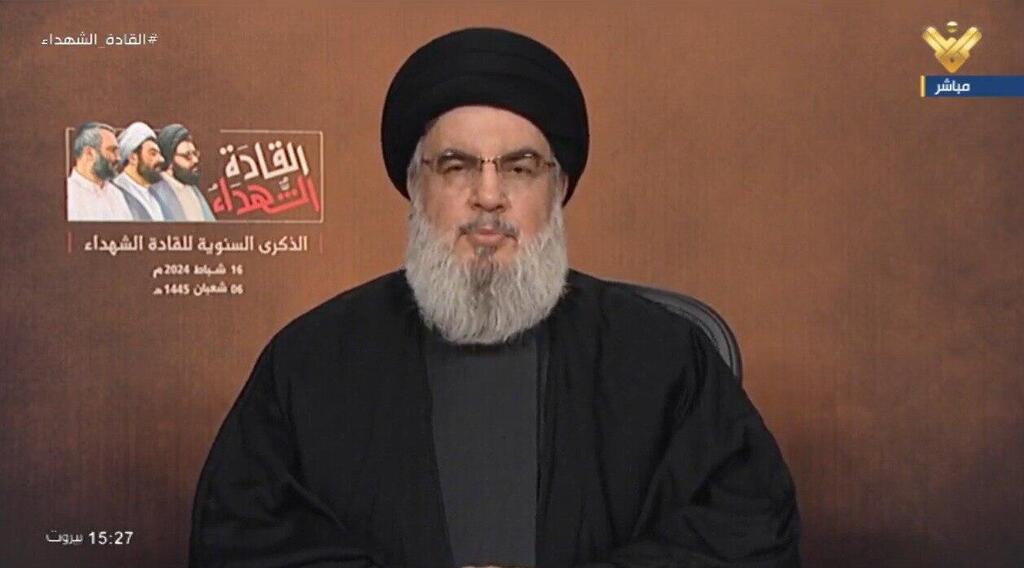Getting your Trinity Audio player ready...
Hezbollah, having aligned itself as a "supporting front" in the war against Israel since October 7, has been vocal about its operations and the damage it claims to inflict on Israel daily. The organization is tenacious in its mission, pledging to continue the fight as the conflict in Gaza persists, despite the extensive destruction its operations have caused in southern Lebanon.
Read more:
Over the past five months, Hezbollah says it has executed about 1,200 operations against Israel. These operations, as defined by the group, range from attacks on military bases to shootings in settlements and open areas. The organization publicly acknowledges its fallen members – officially 241 in number to date, including three who were killed in a recent attack on a house in the southern Lebanese town of Khirbet Selm. However, the IDF suggests the actual casualty figure is higher, estimating it to be more than 300, which implies a daily average of nearly two fatalities.
Hezbollah leader Hassan Nasrallah, in his latest address, stressed that Hezbollah distinguishes between the death of civilians and that of its own terrorists. "When we talk about dead fighters, it's natural. When we talk about civilians, it's especially sensitive for us," Nasrallah said. He emphasized that the group does not tolerate civilian casualties and sent a stark warning with the chilling threat, "the price of civilian blood will be Israeli blood.”
Terror infrastructure within villages
Throughout the ongoing conflict, IDF has relentlessly targeted numerous Hezbollah installations, employing a diverse set of tactics including aerial strikes from planes and drones, as well as artillery. The offensive has focused on command posts, military structures, ammunition depots, rocket launch sites, surveillance outposts and other infrastructure belonging to Hezbollah.
The strikes have had significant personal implications for Hezbollah operatives, many of whom reside and operate out of southern villages. These operatives have turned civilian sites, including their own homes, into strategic targets. As a result, these villages have been largely abandoned due to the displacement of tens of thousands of residents. The economic fabric of these areas has also been severely impacted, with numerous institutions closing down amid an increasingly dire economic crisis in a country already on the brink. Lebanese Foreign Minister Abdallah Bou Habib last month estimated the number of displaced people from southern Lebanon to be 100,000.
The war between Israel and Lebanon has inflicted substantial material damage. Last month, estimates put the cost at around $1.2 billion. A member of the Lebanese Forces party's Central Council, which opposes Hezbollah, recently stated that approximately 520 houses had been completely destroyed, 3,300 had been partially damaged, and infrastructure including power lines, roads and agricultural lands, had also been hit.
The impact on Hezbollah operatives, who are primarily residents of southern Lebanon, is evident. They have sustained damage to agricultural fields due to the fighting. The Lebanese Minister of Agriculture claimed two months ago that Israeli attacks had burned 50,000 olive trees and damaged thousands of dunams of agricultural land. These are areas where Hezbollah operatives often hide to launch attacks on Israel. Just last week, one such operative was killed during an attack. The Lebanese National News Agency reported that he was an "agricultural worker" who chose to remain and work in southern Lebanon.
Moreover, the war has also hit Hezbollah's health institutions. A center belonging to the "Islamic Health Authority", which is affiliated with Hezbollah, was attacked last week. Even though they are often portrayed differently in the Lebanese media, the medical staff at these facilities are, in fact, operatives. Since the beginning of the war, such "Islamic Health Authority" sites have been attacked multiple times, resulting in a number of deaths, with funerals conducted in the same manner as for Hezbollah activists.
Hezbollah attacks in Majdal Shams
Despite the significant damage to Hezbollah, the organization hasn't withdrawn or ceased its operations. In recent days, it launched around 30 rockets at the Hermon in the afternoon and, earlier, a similar barrage toward Mt. Meron in the morning hours. No casualties were reported.








